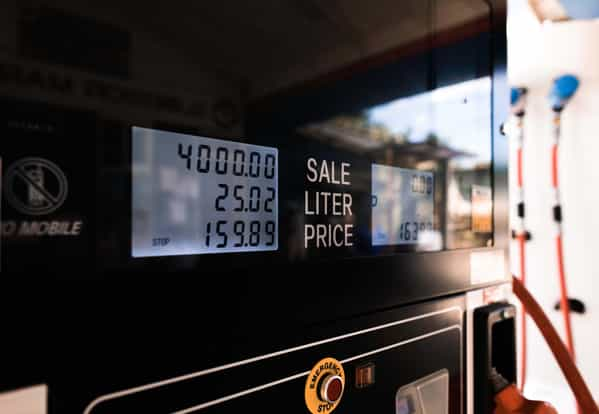Let's talk about ways you can reduce fuel consumption. Fuel consumption is a major expense for any company. In fact, it is the biggest single expense for most businesses. If a company can control its fuel consumption, it will minimise its business costs in general and, as such, make a big difference to the overall profitability of the business.
Through this article, I want to look at five key things that should help you reduce your fuel consumption in the short term.
#1: Get rid of idling
We have recently written a piece on idling without re-producing everything from his blog post: How to reduce idling. Anyway, this post highlights that there is absolutely no point in leaving an engine running for any period of time.
#2: Improve your driving style technique
Harsh braking, rapid acceleration, over-revving, wrong gear selection, the list goes on. A poorly driven vehicle can increase fuel consumption by up to 20% in some vehicles.
A perfect example of this is the time Jeremy Clarkson on Top Gear raced a BMW M3 behind a Toyota Prius, as seen in this video. If you think there is room for improvement in your vehicles, just drop us an email and we can show you how we can help you get a handle on this.
#3: Reduce and eliminate navigational errors
We have all been lost at some point in time and driven all around town looking for our destination. Do you ever wonder what percentage of your fleet's mileage is a result of this sort of lost driving?
I wonder about this too. It would actually make a great little piece of research. I could take something like 1000 journeys, examine them, and work out how many of them have navigational errors (I could work this out by looking at their route replay).
It would probably be sector-specific, as I can't imagine vehicles with fixed routes would have many errors, but service vehicles or sales vehicles must have loads. If anyone else is interested in this research, please let me know. If there is enough interest, I will organise something.

#4: Eliminate personal mileage
This is often more of an HR issue, but there is a lot of money on the table in reducing or removing private mileage. It might be a place to go to look for savings. The options I have seen with our customers are as follows:
- A complete ban. Do not use the vehicle outside of work-related tasks.
- For instance, 200 kilometres per month is allowed. Anything over this, and the employee must pay for it.
- Private mileage reimbursement: Employees must pay for any mileage driven in company vehicles.
All of these options are easily covered by Transpoco, and we can tailor the system to alert you to any infringements of the policy you have put in place.
We recently started trading in Norway, and we have found one of the biggest drivers in the GPS tracking market there is the need to prove that company vehicles are not used privately. The revenue commissioners in Norway visit football matches or supermarkets on the weekend looking for commercial vehicles. They take pictures of the vehicles and note the registration. Then on Monday morning, they show up with a VAT bill for the company and a benefit-in-kind bill for the driver. It's a good idea to raise extra tax, but nobody likes more tax.
#5: Eliminate management flaws
This week I spoke to a potential customer who excellently articulated this problem. He says they strive to provide excellent customer service, so when a customer asked for a small delivery in Westport, County Mayo, that had to be there the next day, he rearranged his whole dispatch plan to accommodate this customer. Currently, he has no GPS tracking system and no way of easily looking back at these kinds of incidents.
When he has the Transpoco GPS tracker installed, he will be able to look at these sorts of abnormalities and calculate the costs. Displaying these at his monthly management meetings will spell out to the rest of the directors in the team how much money they are wasting by being too flexible.
Putting a cost on these sorts of decisions is the best way to think about them logically and to start putting policies and procedures in place to protect the company from this sort of loss in the future. In this particular case, I do not know how they could have avoided the incident, but surely there must be something that could be done in the future to help them avoid or minimise the issue.
Anyway, that sums up my current thoughts on the five easiest ways to reduce fuel consumption. I will add more to this over the next couple of months. If you want to be included on our mailing list, just let us know.
Photo by Rock Staar on Unsplash



